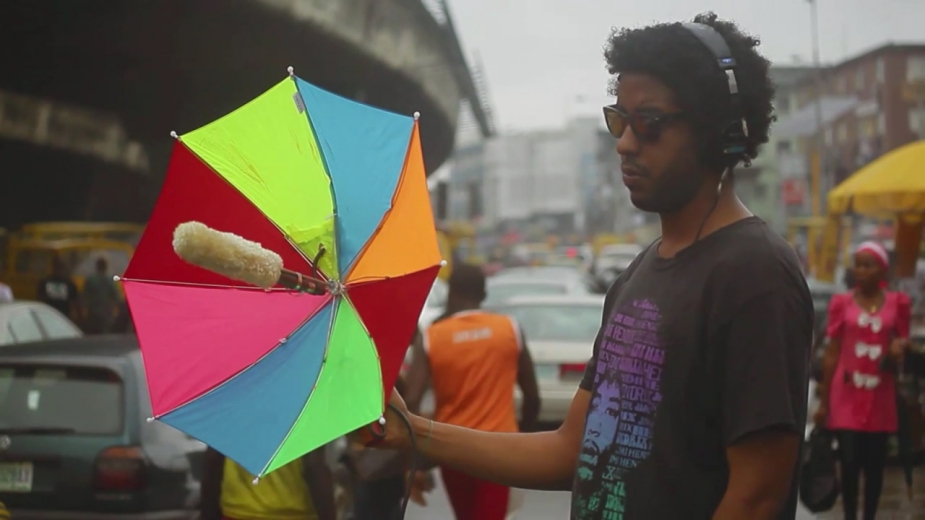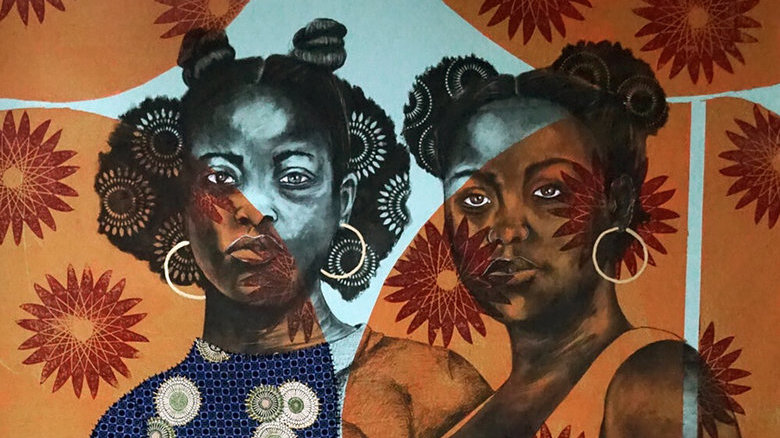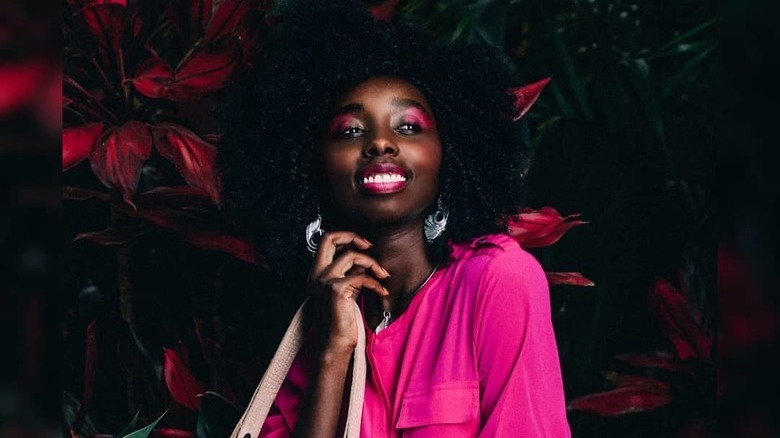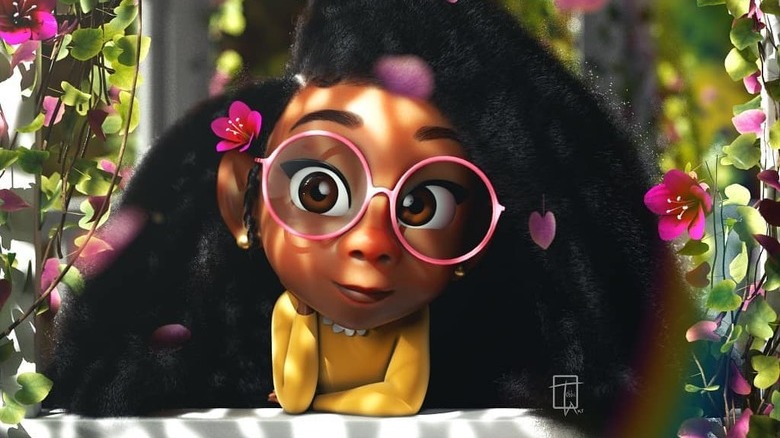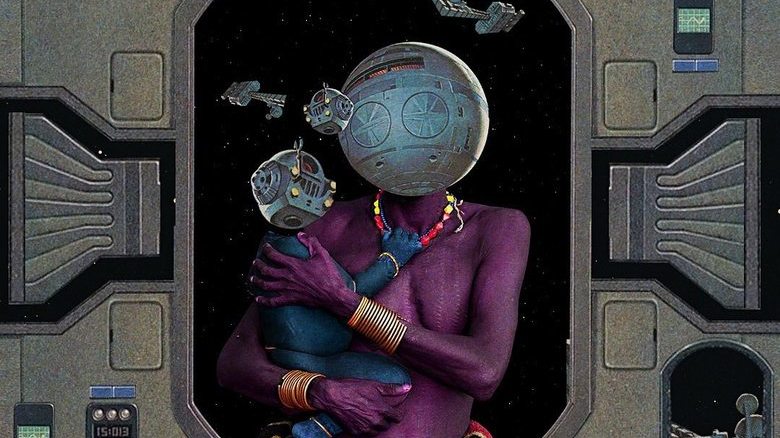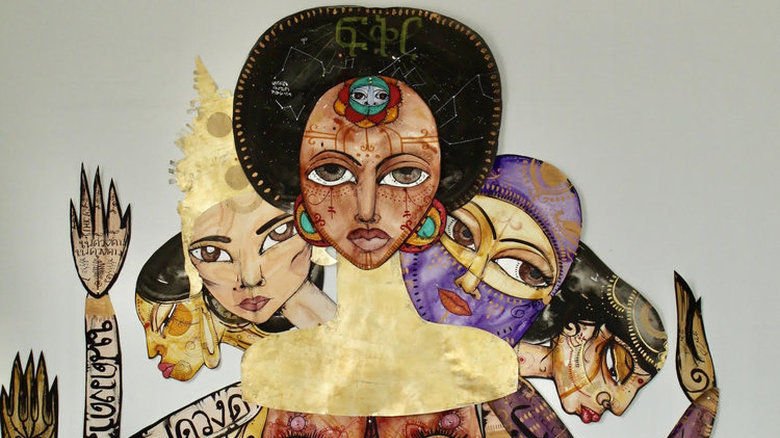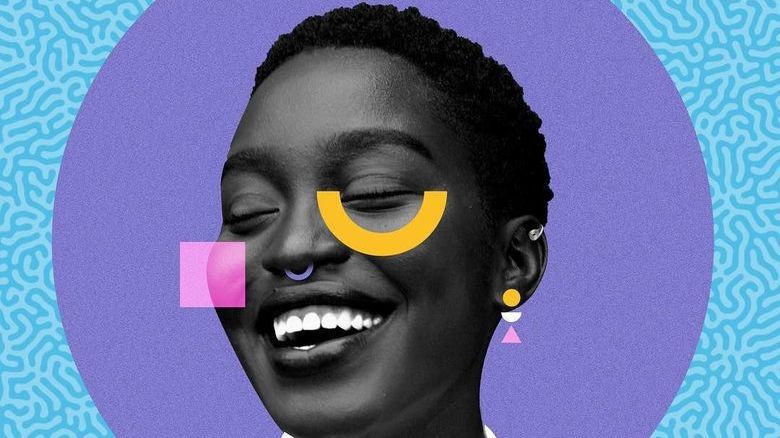Mikael Seifu captures Lagos soundscapes
In this recent Soundhunters documentary titled ‘Lasgidi’, featuring Mikael Seifu, the “musical documentary transmedia project which empowers people in sampling the world they live in as a playful tribute to cultural remix” explores the clay-like plasticity of language and media, and expands on the adage that music is a universal language, and the connectivity between the two in Lagos, Nigeria.
Seifu, an Ethiopian electronic music producer, releases work that often includes field recordings that sample traditional Ethiopian instruments, in the form of masinkos and krars, blending them with singing in the official Amharic language as well as Geez. Finding himself on the other side of the continent, in this episode of Soundhunter’s, we follow Seifu’s travels in and around Lagos, capturing field recordings of one of Nigeria’s most vibrant and bustling cities, using these dynamic sounds of everyday life to create and entirely new soundscape of music.
The documentary opens with Seifu’s visit to a radio station, Naija FM, for an introduction to the Pidgin English spoken in Lagos, and to broadcast his mission statement, “to merge both North African and South West African music together.” Seifu spends time understanding the cultural form and function of Pidgin: its origins, where it’s spoken, the way it’s written, and even picking up a few phrases along the way. When asked what he wanted to learn, Seifu coyly replied, “I kind of want to know how to say ‘hi’ to a lady in Pidgin.”
In a conversation with Seifu, Nigerian poet and writer Aj Dagga Tolar comments on the ever expanding and evolving nature of communication with respect to the English language and the Pidgin English that’s developed in Lagos, commenting that “the more people live, the more they gain new experiences and consequently, the more language vocabulary expands.”
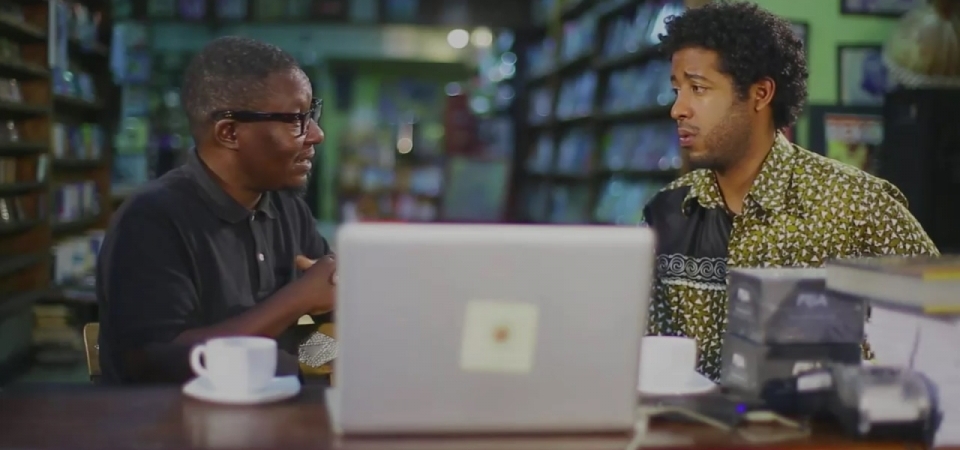
This message is underscored by the Soundhunter’s documentary format. With captioned, interactive soundbites, a new Seifu track that unlocks midway through the documentary, and the ability to create music using sonic elements of Seifu’s field recordings, interactive, digital media has evolved and expanded in similar fashion. This evolution in interactive media connects and reconfigures the relationship between artist and audience, while linguistic evolution connects and reconfigures the relationship between people and cultural identities. Jazzhole record and book store owner Kunle Tejuoso cited Fela Kuti as the best example of an artist using Pidgin to spread his political message in a way that connected Nigeria’s different ethnicities, “Of course music is universal in its language, but in terms of understanding messages, it’s eas[iest] in Pidgin”.
Throughout the documentary, Seifu travels through the Ajegunle district of Lagos, where Pidgin is most prominent, and, using a shotgun microphone parabolized by a small umbrella, records the static dynamism of the Lagos: overlapping Pidgin conversations, Lagos buses honking, generators buzzing, children’s solicitations for “pure water”. Seifu remarks on the “musical connotation” of Ajegunle’s vibrant bustle, as well as inquiries he received as to why his own music rarely features traditional vocals.
The dichotomy between Seifu’s craft and cultural environment recalls a comment by composer John Cage:
“When I hear what we call music, it seems to me that someone is talking… but when I hear traffic, I don’t have the feeling that anyone is talking, I have the feeling that sound is acting…”
Seifu’s music, a barrage of cacophonous field recordings piled onto electronic beats, often combines aspects of the two, creating “sonorous sculptures” via music.
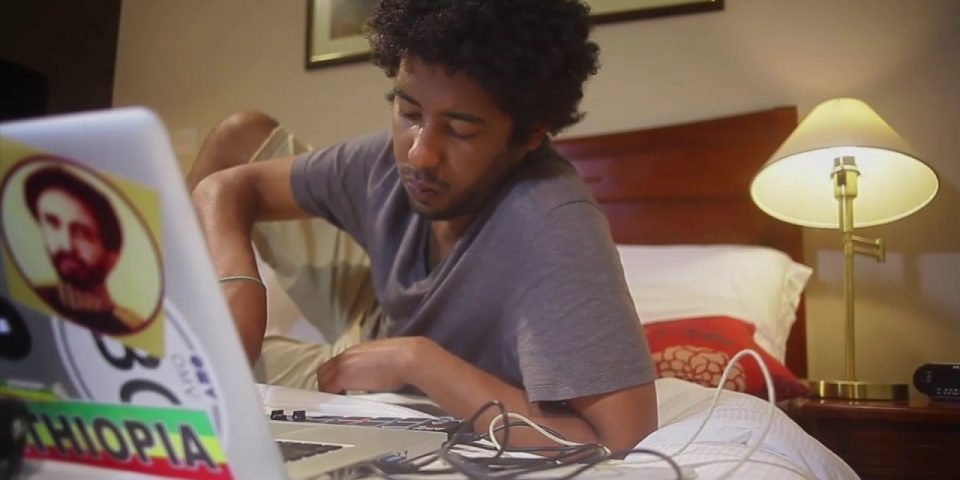
The documentary ends with Seifu creating music with a Nigerian singer Diana Bada who addresses her use of Pidgin in her music as directly tied to her identity, “When people hear my music and they hear one sentence, [they know] a Naija girl did this. It’s like a stamp, this is where I’m from.”
The role of Pidgin in music is inherently tied to identity for Nigerians, in communicating with fellow Nigerians as well as representing a collective Nigerian identity within the international music scene through a vernacular commonality. “Immersion”, the track that plays at the end of Lasgidi, has only one intelligible vocalist, a child saying a phrase in Pidgin, and only one melodic phrase, a short musical passage played by a washint, an Ethiopian flute. The two elements of the track, juxtaposed quite literally in their placement next to each other on the song are sonic proof of Seifu accomplishing his mission statement.
Watch the teaser bellow.
